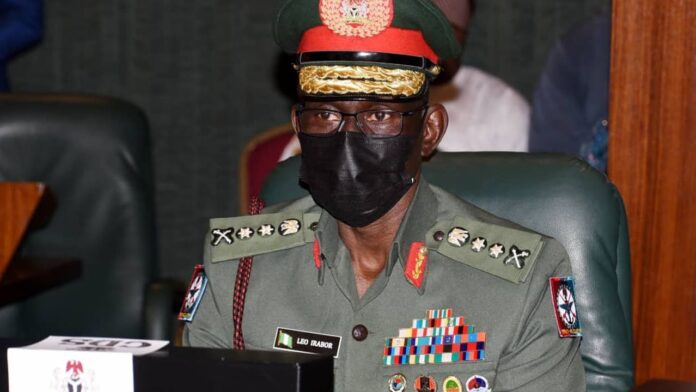Chief of Defence Staff (CDS), Gen. Lucky Irabor, met with Plateau State stakeholders in Jos on Wednesday as part of efforts to restore peace in the state.
He said that the meeting aimed at finding a lasting solution to the killings and wanton destruction of lives and property in the state.
He added that the meeting would grant him the opportunity to hear from the people on factors responsible for the killings and what should be done to address the menace.
Irabor described the myriad of security challenges in the state as “worrisome’’, hence the need for key stakeholders to meet and examine solutions.
“Recently, the peace process in Plateau has been distorted and we recorded a loss of lives and massive destruction of properties
“These occurrences are not heart-warming at all; these killings cannot continue.
“So, I am here with my team to look at what has been the problem, first by hearing from you and to get your opinions on what should be done
“It is also to ensure that as a people, we have a common understanding that never again will we allow the loss of lives and property as we recently experienced,’’ he said.
The CDS, who commiserated with the government and people of the state over the recent happenings, urged for collective efforts toward entrenching lasting peace.
He maintained that security agencies alone could not bring lasting peace to the state, but the collective resolve of the people to live together and tolerate each other would do.
“The security agencies alone cannot give you peace; it can only create the enabling environment for you to take the lead in the peace process.
“Plateau used to be the best place one can be in this country; the favourable weather, fertile land and the ambience are second to none.
“The desire of Mr President is to ensure that lasting peace returns to Plateau. This is why I am here,’’ he stressed.
Governor Simon Lalong, his Deputy, Prof. Sonni Tyoden, and other top government officials attended the meeting.
Traditional rulers, local government chairmen, representatives of cultural and development associations, youth and women groups, were also in attendance.
Other participants were trade unions, non-governmental and civil society organisations.

